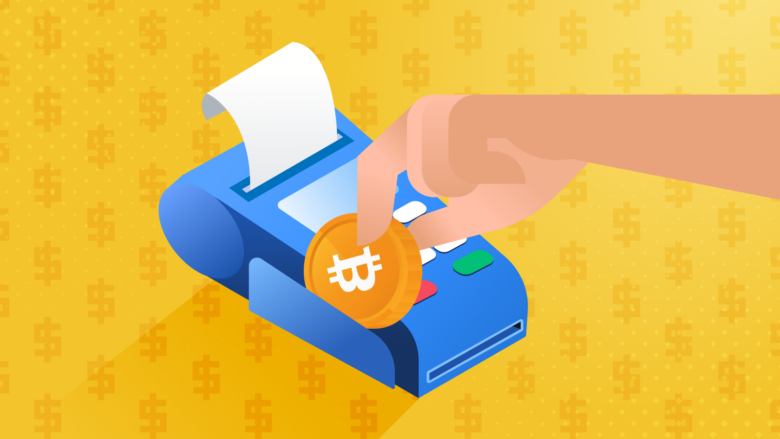The digital economy is growing at an unprecedented rate and blockchain technology is one of the most revolutionary innovations to lead the way. With cryptocurrencies being accepted by more businesses every day, it’s only natural that consumers want to pay with digital currencies online as well. If you’re looking for ways to accept cryptocurrency payments on your website or platform, read on!
In this guide, we’ll cover what crypto payment gateways are, how they work, why businesses should consider using them, and other essential information about accepting crypto payments through a gateway service provider.

Source: rapidz.io
Contents
- Introduction to Crypto Payment Gateways
- How Crypto Payment Gateways Work
- Benefits for Businesses
- Integration with E-commerce Platforms
- Regulatory Considerations and Challenges
- Future Trends and Potential Impact
- Crypto payment gateways offer a way to accept payments in cryptocurrency, but they come with regulatory challenges.
- Conclusion
Introduction to Crypto Payment Gateways
A crypto payment gateway is a service that allows merchants to accept cryptocurrencies as payment for goods or services. It’s important to note that there are many different types of crypto payment gateway services, each with its pros and cons. The most popular ones include BitPay, Coinbase Commerce (formerly known as Pay with Bitcoin), Coinify, and BitPesa.
One of the biggest differences between these crypto payment gateway services is how they handle fiat currency conversion: some will automatically convert your cryptocurrency into fiat currency at the time of purchase; others will let you hold onto your cryptocurrency until you’ve sold it on an exchange.
A second difference is how they handle transaction fees: some crypto payment gateway services charge higher rates than others; some offer discounts if you’re buying something expensive enough; others offer no discount but provide better customer service instead (for example).
How Crypto Payment Gateways Work
Crypto payment gateways are a way to accept cryptocurrency payments on your website. They’re an alternative to traditional payment gateways, which convert credit card transactions into fiat currency (dollars). Crypto payment gateways do this as well, but they also offer another option: converting the cryptocurrency into fiat currency for you and depositing it in your bank account. You can choose whether or not you want this feature; if you don’t need it at all or only occasionally, then using a crypto-to-crypto gateway like Coinbase Commerce may be more convenient than paying fees each time someone buys something from your site with cryptocurrency.

Source: academy.binance.com
Benefits for Businesses
- Lower transaction fees
Cryptocurrencies have been developed to allow for more efficient transactions, which translates into lower costs for merchants. There are no chargebacks or refunds involved when using cryptocurrencies, so you don’t have to worry about paying out of pocket if your customer decides they want their money back. This also means there’s no need to worry about geographical restrictions or currency exchange rates when accepting cryptocurrency payments, just accept any form of payment in the world!
- No need for liquidity management
Because cryptocurrency is a non-fiat currency (meaning it’s not backed by government regulation), you don’t need to worry about liquidity management as you would with traditional credit card payments. If someone buys something from your store with Bitcoin and then immediately sells their Bitcoin back into fiat currency through an exchange like Coinbase or Kraken, this won’t affect your business at all because there are no limits on how much money people can withdraw from these platforms each day you only receive what they paid with.
Integration with E-commerce Platforms
As the crypto market continues to expand, businesses need to consider how they can incorporate cryptocurrencies into their business models. One way to do this is by integrating a cryptocurrency payment gateway service into your e-commerce platform. This will allow you or your customers to pay for goods and services using cryptocurrencies like Bitcoin (BTC), Ethereum (ETH), Litecoin (LTC), XRP, Dash, etc.

Source: newsfeed.org
Regulatory Considerations and Challenges
The regulatory landscape is still evolving and will continue to be a challenge for crypto payment gateway service providers. Cryptocurrencies are not regulated by any government or central bank, nor are they backed by any institution or guaranteed by insurance companies. This means that it’s up to individual users to ensure their funds are secure and stored in a safe place. To address the evolving regulatory landscape and overcome these challenges, collaboration between industry participants, governments, and regulatory authorities is essential. Industry self-regulatory initiatives, such as the establishment of standards and best practices, can help promote transparency, security, and consumer protection. Similarly, dialogue and engagement with regulators can facilitate the development of balanced and effective regulatory frameworks that foster innovation while addressing the risks associated with cryptocurrencies.
Future Trends and Potential Impact
While crypto payment gateways are still in their infancy, there is a lot of growth potential. Technology has the power to change the way we shop online and even impact other areas of e-commerce.
For example, if you want to sell your products or services on an eCommerce platform like Etsy or eBay but don’t have access to traditional payment methods like credit cards or PayPal (which can be difficult for some small businesses), then a crypto payment gateway could be very helpful!
Of course, this also means that people who operate these platforms have an incentive to adopt crypto payments: they’ll earn more money by charging less fees than they would with traditional payment methods like credit cards while also avoiding chargebacks from fraudulent customers who never receive their items (which happens frequently).

Source: salesforce.com
Crypto payment gateways offer a way to accept payments in cryptocurrency, but they come with regulatory challenges.
Crypto payment gateways offer a way to accept payments in cryptocurrency, but they come with regulatory challenges.
Cryptocurrencies are becoming more mainstream as time goes on. While they may have been only used by techies and crypto-enthusiasts at first, now it seems like every day there’s news about how some big company or other is accepting cryptocurrency as a form of payment. This has led to an increasing need for crypto payment gateway services that allow businesses to accept cryptocurrencies and convert them into fiat currency (USD, EURO, etc).
Conclusion
The future of payments is in cryptocurrency, but it will take some time before we see widespread adoption. If you’re interested in exploring the possibilities that crypto payment gateways offer, then contact us today!
